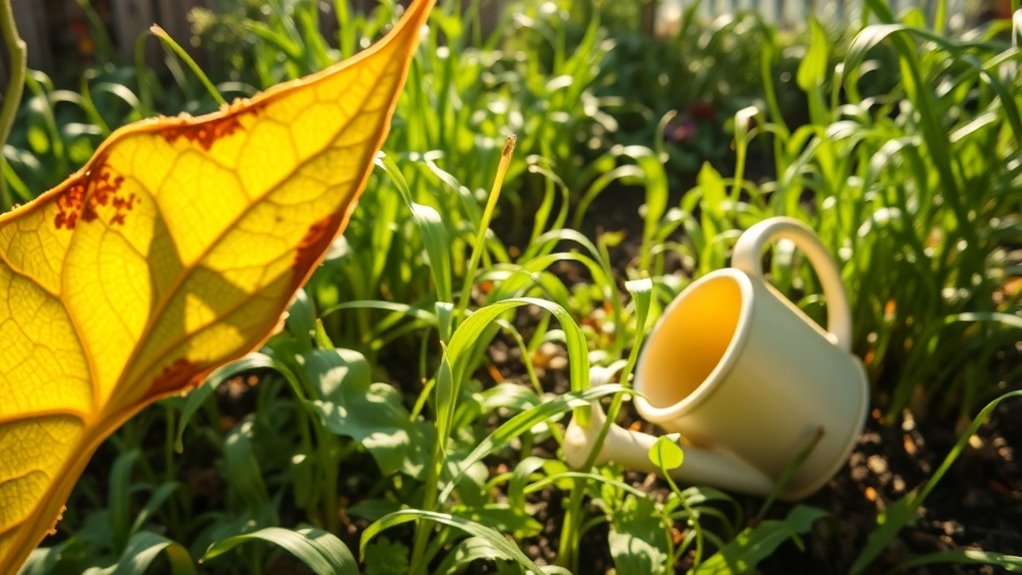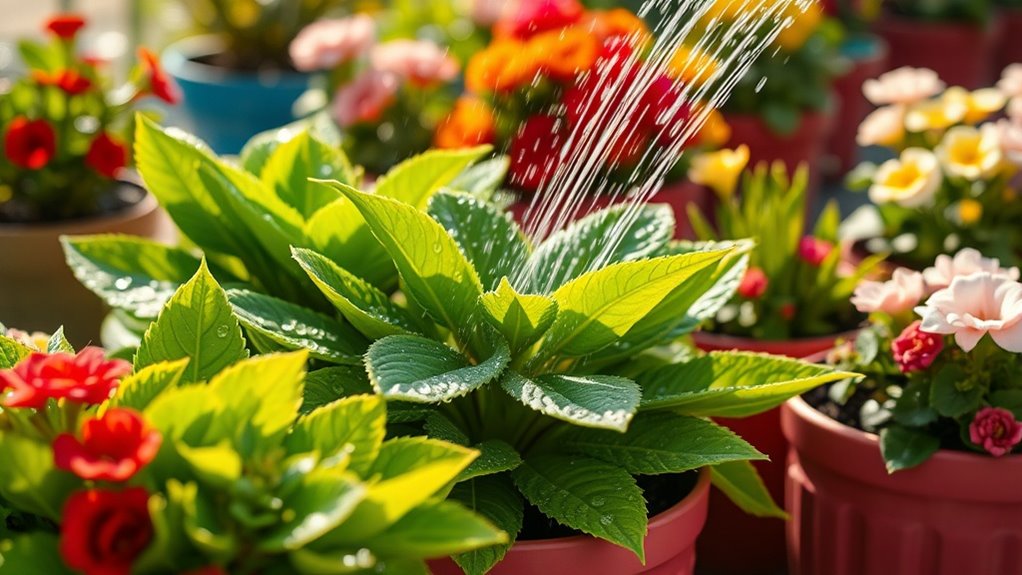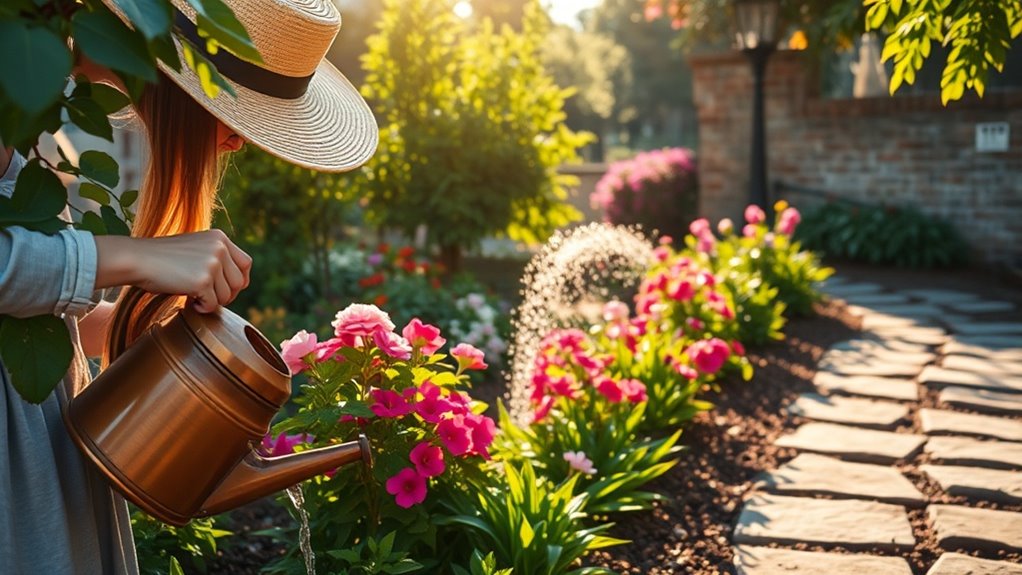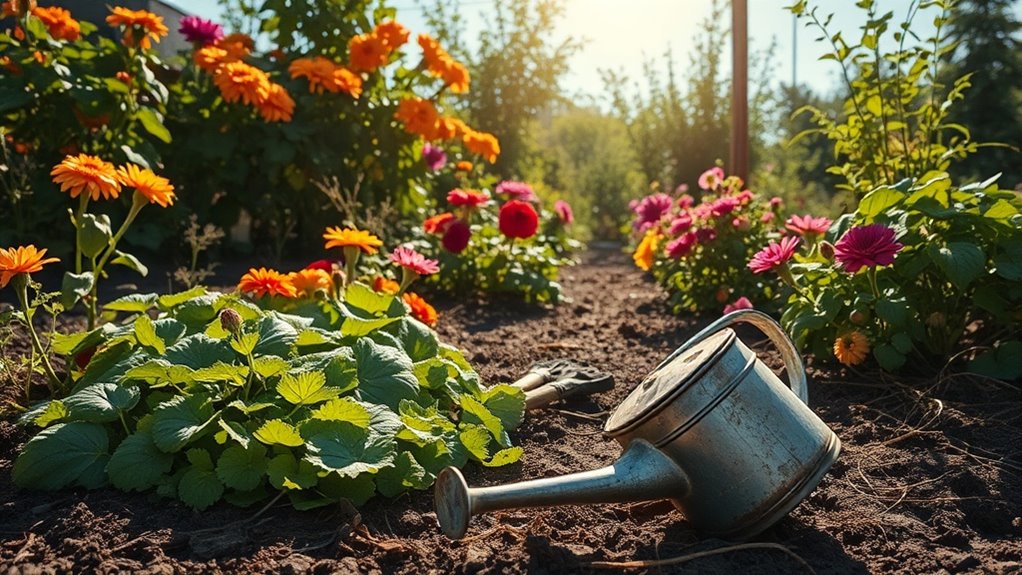The #1 Gardening Mistake Beginners Make and How to Avoid It
While beautiful plants can thrive in lush gardens, poor soil quality can lead to disappointment and failure. Many beginners overlook this critical aspect, assuming all soil is created equal. However, understanding soil health is essential for successful gardening. By grasping the importance of testing and improving your soil, you can set your plants up for success. What steps can you take to ensure your garden flourishes from the ground up?
Understanding Soil Quality
When you dig into gardening, one of the first things you need to understand is soil quality. Ignoring its importance is one of the biggest gardening mistakes beginners make. Healthy soil supports root growth, retains moisture, and provides essential nutrients. One common sign of struggling garden soil is poor nutrient retention, which can hinder plant health. Test your soil’s pH and nutrient levels to determine the right amendments. A solid foundation leads to thriving plants and a successful garden.
Common Soil Issues for Beginners
Although you may feel excited to start your gardening journey, addressing common soil issues is crucial for ensuring your plants thrive.
Take note of these common problems:
- Poor drainage leading to root rot
- Compacted soil restricting root growth
- Low nutrient levels affecting plant health
- High acidity or alkalinity disrupting nutrient uptake
- Pest infestations damaging roots
Tackling these issues early will set your garden up for success! Additionally, implementing strategies to evaluate your soil’s health without a testing kit can help you identify any underlying problems.
Testing Your Soil Composition
How can you ensure your plants get the nutrients they need? By testing your soil composition!
Use a soil test kit to analyze pH levels, nutrient content, and organic matter. You can take samples from various spots in your garden.
Understanding your soil’s composition helps you select appropriate plants and prevents common issues, leading to healthier, thriving gardens.
Improving Soil Health
To enhance the vitality of your garden, it’s essential to focus on improving soil health. This creates a thriving environment for your plants.
Consider these tips:
- Add organic matter, like compost.
- Practice crop rotation to prevent depletion.
- Use mulching to retain moisture.
- Test and amend pH levels.
- Encourage beneficial microorganisms with cover crops.
Incorporating natural materials can also significantly boost soil health and fertility. These steps will ensure your soil supports vigorous plant growth.
Choosing the Right Plants for Your Soil
When you choose the right plants for your soil, you’ll significantly enhance your garden’s chances of thriving.
Start by testing your soil type—whether it’s sandy, clay, or loamy—then select plants suited for that environment.
Research native species, as they often require less maintenance and better adapt to local conditions.
Match your plant choices to your soil’s pH and moisture levels for optimal growth. Additionally, consider adding banana peels to your soil as they can help improve its nutrient content, benefiting your plants even more.
Maintaining Soil Quality Over Time
To maintain soil quality over time, follow these tips:
- Test soil pH regularly
- Add organic matter like compost
- Rotate crops each season
- Limit chemical fertilizers
- Mulch to retain moisture
Additionally, be aware that signs of acidic soil can negatively impact plant growth, so monitoring soil pH is crucial.





